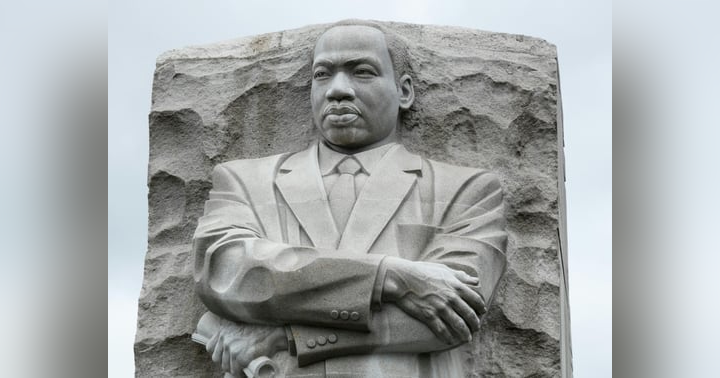Jan. 6, 2023
Answering Adventism: List of Resources from the Show

In a recent broadcast, I had the pleasure of sitting down with third generation former 7th-Day Adventist, Myles Christian from the You Tube Channel Answering Adventism. During that broadcast we uncovered a lot of information about the 7th-Day Adventist faith that left us with more questions than answers. Below are some of the resources that were quoted from during the broadcast.
RESOURCES on 7th Day Adventism
The bracketed codes are for the online Ellen White library app, the page numbers are for the book versions.
Review and Herald Article denying the Gospel Paul Preached
Every sin unconfessed or forgotten will stand against you in the Judgment
“How solemn is the thought! Day after day, passing into eternity, bears its burden of records for the books of Heaven. Words once spoken, deeds once done, can never be recalled. Angels have registered both the good and the evil. The mightiest conqueror upon the earth cannot call back the record of even a single day. Our acts, our words, even our most secret motives, all have their weight in deciding our destiny for weal or woe. Though they may be forgotten by us, they will bear their testimony to justify or to condemn.”—The Great Controversy (1888), pg. 487 (GC88 486.3)
Christ's righteousness is only applied to those who pass the Investigation
“All who have truly repented of sin, and by faith claimed the blood of Christ as their atoning sacrifice, have had pardon entered against their names in the books of heaven; as they have become partakers of the righteousness of Christ, and their characters are found to be in harmony with the law of God, their sins will be blotted out, and they themselves will be accounted worthy of eternal life.”—Christ In His Sanctuary, pg. 177 (CIHS 177.2)
Only those who, through faith obey all the Commandments, will reach sinlessness
“Those only, who through faith in Christ obey all of God’s commandments, will reach the condition of sinlessness in which Adam lived before his transgression.”—Letters & Manuscripts, Manuscript 122, 1901, par. 6
Christ died to make it possible to cease from sinning
“Christ died to make it possible for you to cease to sin, and sin is the transgression of the law.”—Review and Herald, August 28, 1894, par. 4
Satan caused Jesus to doubt his resurrection, acceptance, and that He would be eternally separated from the Father
“Satan with his fierce temptations wrung the heart of Jesus. The Saviour could not see through the portals of the tomb. Hope did not present to Him His coming forth from the grave a conqueror, or tell Him of the Father's acceptance of the sacrifice. He feared that sin was so offensive to God that Their separation was to be eternal.”—The Desire of Ages, pg. 753 (DA 753.2)
Christ inherited and took on a sinful, fallen nature
“In His humanity Christ partook of our sinful, fallen nature. If not, then He was not "made like unto His brethren," was not "in all points tempted like as we are," did not overcome as we have to overcome, and is not, therefore, the complete and perfect Saviour man needs and must have to be saved. The idea that Christ was born of an immaculate or sinless mother, inherited no tendencies to sin, and for this reason did not sin, removes Him from the realm of a fallen world, and from the very place where help is needed. On His human side, Christ inherited just what every child of Adam inherits,- a sinful nature. On the divine side, from His very conception He was begotten and born of the Spirit. And all this was done to place mankind on vantage-ground, and to demonstrate that in the same way every one who is "born of the Spirit" may gain like victories over sin in his own sinful flesh. Thus each one is to overcome as Christ overcame. Rev. 3:21.”—Bible Readings for the Home Circle, 1914, ch. 39
Christ was exalted to be made equal with the Father
”Satan was envious and jealous of Jesus Christ…Christ had been taken into the special counsel of God in regard to his plans, while Satan was unacquainted with them. He did not understand, neither was he permitted to know, the purposes of God. But Christ was acknowledged sovereign of Heaven, his power and authority to be the same as that of God himself. Satan thought that he was himself a favorite in Heaven among the angels. He had been highly exalted; but this did not call forth from him gratitude and praise to his Creator. He aspired to the height of God himself. He gloried in his loftiness. He knew that he was honored by the angels. He had a special mission to execute. He had been near the great Creator, and the ceaseless beams of glorious light enshrouding the eternal God, had shone especially upon him. Satan thought how angels had obeyed his command with pleasurable alacrity. Were not his garments light and beautiful? Why should Christ thus be honored before himself?”—The Spirit of Prophecy, Vol. I, pg.18 (1sp 18.1)
Jesus was next in authority to the great Lawgiver (God the Father)
“The Son of God was next in authority to the great Lawgiver. He knew that his life alone could be sufficient to ransom fallen man. He was of as much more value than man as his noble, spotless character, and exalted office as commander of all the heavenly host, were above the work of man. He was in the express image of his Father, not in features alone, but in perfection of character.”—The Spirit of Prophecy, Vol. II, pg. 9 (2sp 9.1)
Satan is the final sin-bearer and the work of atonement is completed upon him having the sins placed on him by Christ as the antitypical scapegoat
“As in the final atonement the sins of the truly penitent are to be blotted from the records of heaven, no more to be remembered or come into mind, so in the type they were borne away into the wilderness, forever separated from the congregation. Since Satan is the originator of sin, the direct instigator of all the sins that caused the death of the Son of God, justice demands that Satan shall suffer the final punishment. Christ's work for the redemption of men and the purification of the universe from sin will be closed by the removal of sin from the heavenly sanctuary and the placing of these sins upon Satan, who will bear the final penalty. So in the typical service, the yearly round of ministration closed with the purification of the sanctuary, and the confessing of the sins on the head of the scapegoat.”—Christ In His Sanctuary, pg. 57 (CIHS 57.2)
Was Dr. Martin Luther King Jr. a Christian?
Who Are You Following?
The idea of “not being a follower” is something we’ve been taught since childhood, but might I challenge that a bit? Instead of adopting this statement as a blanket rule, I’d suggest that it’s no…
Join me and Vince Everett Ellison in Raleigh, NC!
Attention North Carolina! Join me and my good friend, Vince Everett Ellison for a private film screening of the critically acclaimed documentary, Will You Go To Hell For Me? The Standard of Truth Podcast and The Vince Everett Ellison show is on the …







